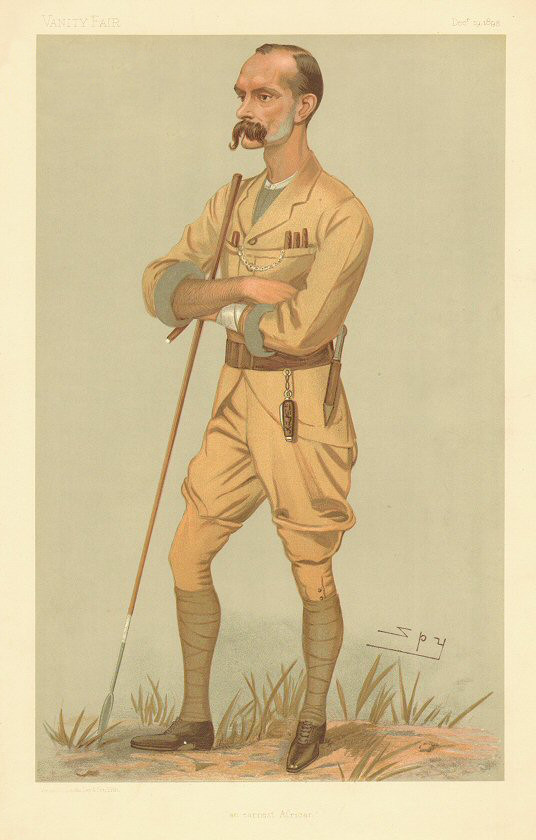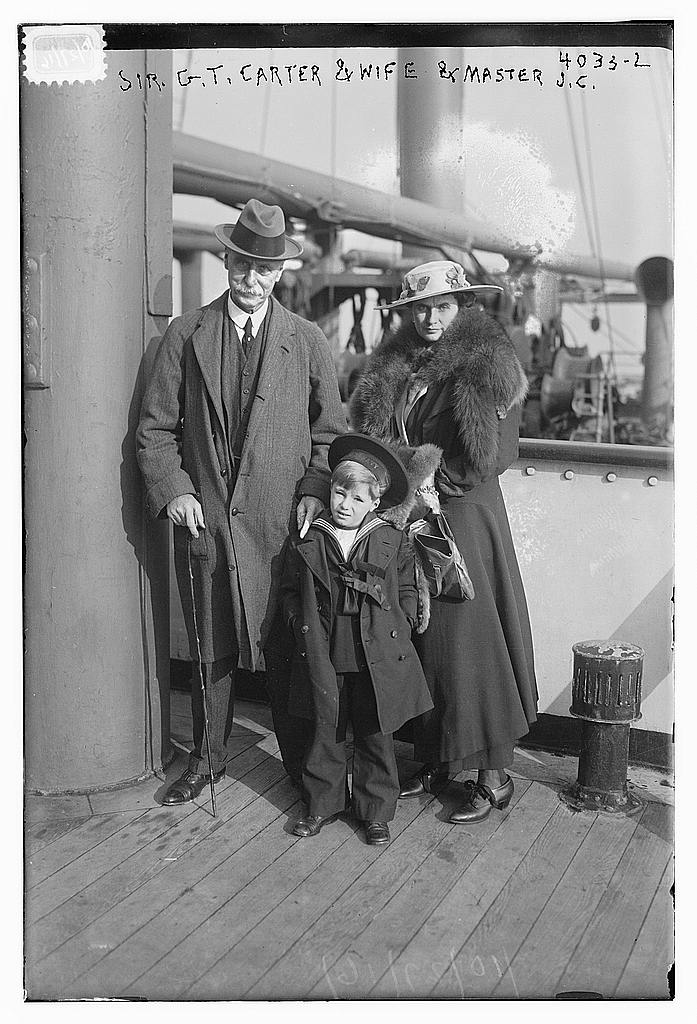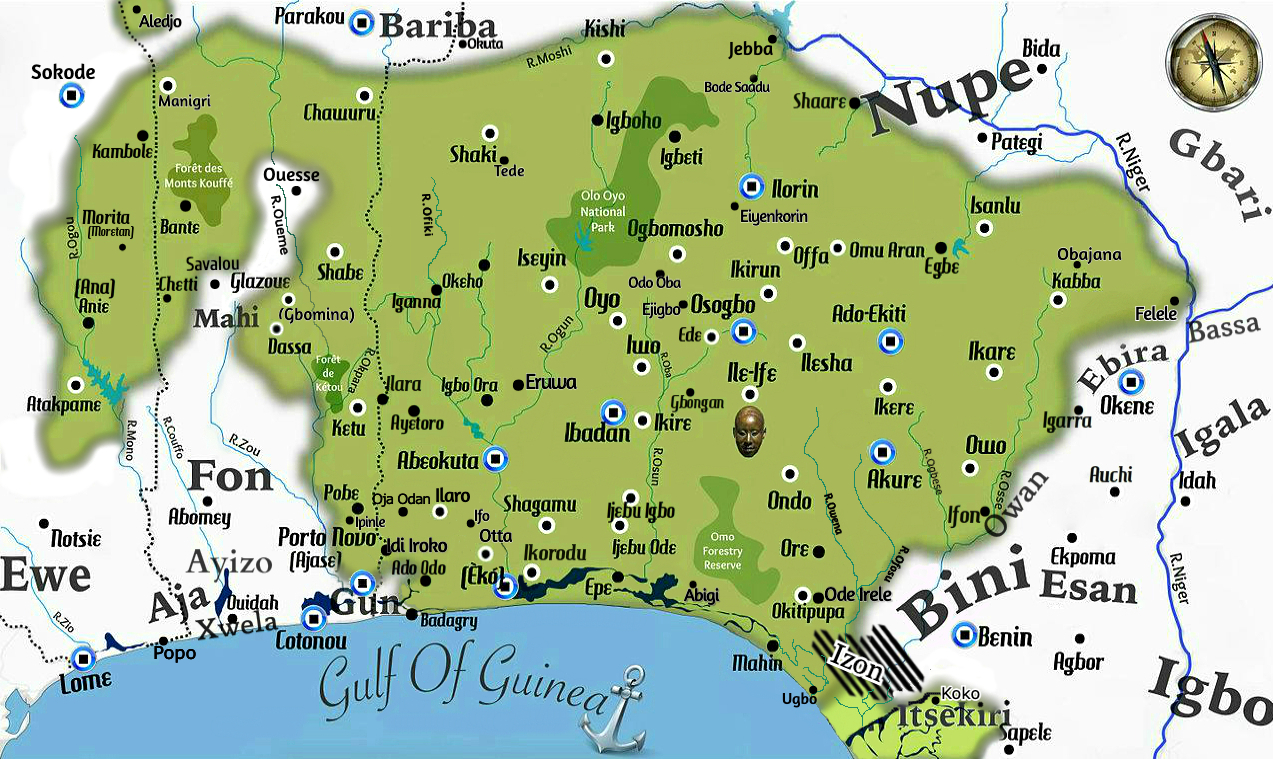|
John Payne Jackson
John Payne Jackson (25 March 1848 – 1 August 1915) was an Americo-Liberian journalist, born in Liberia who was influential in Lagos, Nigeria around the turn of the 20th century. He edited and published the ''Lagos Weekly Record'' from 1891 until his death. This was a well-written and informative paper that discussed and analysed current events. It took an anti-colonialist, African nationalist position that made it unpopular with the authorities and also with some of the Nigerian elite. Early years John Jackson was born on 25 March 1848 in Cape Palmas, Liberia. His father, Thomas John Jackson, had migrated to that colony in Liberia from Maryland, US. His mother may have also come from Maryland. His father was a town councilor, judge and Methodist preacher who died when John Jackson was four years old. Jackson was educated at the Training Institute in Cape Palmas, run by Bishop John Payne. At first Jackson wanted to be a merchant. After travelling throughout West Africa, in the l ... [...More Info...] [...Related Items...] OR: [Wikipedia] [Google] [Baidu] |
Cape Palmas
Cape Palmas is a headland on the extreme southeast end of the coast of Liberia, Africa, at the extreme southwest corner of the northern half of the continent. The Cape itself consists of a small, rocky peninsula connected to the mainland by a sandy isthmus. Immediately to the west of the peninsula is the estuary of the Hoffman River. Approximately 21 km (15 mi) further along the coast to the east, the Cavalla River empties into the sea, marking the border between Liberia and the Côte d'Ivoire. It marks the western limit of the Gulf of Guinea, according to the International Hydrographic Organization (IHO). Approached from the sea, there are several landmarks at the cape. Offshore from the estuary of the Hoffman lies the small, oblong shape of ''Russwurm Island'', which was named after the first black governor of Maryland In Africa (later Republic of Maryland), John Brown Russwurm. This island is connected to the peninsula by a breakwater. There is also a lighthouse warn ... [...More Info...] [...Related Items...] OR: [Wikipedia] [Google] [Baidu] |
Dahomey
The Kingdom of Dahomey () was a West African kingdom located within present-day Benin that existed from approximately 1600 until 1904. Dahomey developed on the Abomey Plateau amongst the Fon people in the early 17th century and became a regional power in the 18th century by expanding south to conquer key cities like Whydah belonging to the Kingdom of Whydah on the Atlantic coast which granted it unhindered access to the tricontinental triangular trade. For much of the middle 19th century, the Kingdom of Dahomey became a key regional state, after eventually ending tributary status to the Oyo Empire. European visitors extensively documented the kingdom, and it became one of the most familiar African nations to Europeans. The Kingdom of Dahomey was an important regional power that had an organized domestic economy built on conquest and slave labor, significant international trade and diplomatic relations with Europeans, a centralized administration, taxation systems, and an organ ... [...More Info...] [...Related Items...] OR: [Wikipedia] [Google] [Baidu] |
Edward Wilmot Blyden
Edward Wilmot Blyden (3 August 1832 – 7 February 1912) was a Liberian educator, writer, diplomat, and politician who was primarily active in West Africa. Born in the Danish West Indies, he joined the waves of black immigrants from the Americas who migrated to the country. Blyden became a teacher for five years in the British West African colony of Sierra Leone in the early twentieth century. His writings on pan-Africanism became influential throughout West Africa, attracting attention in countries such as the United States as well. He believed that Zionism was a model for what he termed Ethiopianism, and that African Americans could return to Africa and help in the rebuilding of the continent. Blyden was recognised in his youth for his talents and drive; he was educated and mentored by John Knox, an American Protestant minister in Sankt Thomas who encouraged him to continue his education in the United States. In 1850 Blyden was refused admission to three Northern theo ... [...More Info...] [...Related Items...] OR: [Wikipedia] [Google] [Baidu] |
Thomas Horatio Jackson
Thomas Horatio Jackson (1879–1935) was a Nigerian newspaper editor and publisher, who has been called a "veritable titan of the Lagos Press". Jackson's career, like that of his father John Payne Jackson, has been said to "exemplify the militant and crusading zeal of the pioneer journalists" in Nigeria. Life After his father died in 1915 Jackson became editor of the ''Lagos Weekly Record''. In 1923 he was involved in the founding of the Nigerian National Democratic Party. In 1925 Jackson was imprisoned for an article arguing that the Supreme Court A supreme court is the highest court within the hierarchy of courts in most legal jurisdictions. Other descriptions for such courts include court of last resort, apex court, and high (or final) court of appeal. Broadly speaking, the decisions of ... judges were nothing more than tools of the executive.Thomas Horatio Jackson, "The dangers of the judicial system in Nigeria", ''Lagos Weekly Record'', 16 September 1925. See References ... [...More Info...] [...Related Items...] OR: [Wikipedia] [Google] [Baidu] |
Frederick Lugard, 1st Baron Lugard
Frederick John Dealtry Lugard, 1st Baron Lugard (22 January 1858 – 11 April 1945), known as Sir Frederick Lugard between 1901 and 1928, was a British soldier, mercenary, explorer of Africa and colonial administrator. He was Governor of Hong Kong (1907–1912), the last Governor of Southern Nigeria Protectorate (1912–1914), the first High Commissioner (1900–1906) and last Governor (1912–1914) of Northern Nigeria Protectorate and the first Governor-General of Nigeria (1914–1919). Early life and education Lugard was born in Madras (now Chennai) in India, but was brought up in Worcester, England. He was the son of the Reverend Frederick Grueber Lugard, a British Army chaplain at Madras, and his third wife Mary Howard (1819–1865), the youngest daughter of Reverend John Garton Howard (1786–1862), a younger son of landed gentry from Thorne and Melbourne near York. His paternal uncle was Sir Edward Lugard, Adjutant-General in India from 1857 to 1858 and Permanent Under- ... [...More Info...] [...Related Items...] OR: [Wikipedia] [Google] [Baidu] |
Kitoye Ajasa
Sir Kitoye Ajasa (also spelled Kitoyi; 10 August 1866 – 1937) was a Nigerian lawyer and legislator during the colonial period. He was conservative, and worked closely with the colonial authorities. He thought that progress would only be possible if Africans adopted European ideas and institutions. Ajasa was one of the leaders of the People's Union, and was the founder of the conservative newspaper the ''Nigerian Pioneer''. He was the first Nigerian to be knighted. Early years Kitoye Ajasa was from a branch of the Saro community that had migrated from Ajase in Dahomey to Lagos. His father, Thomas Benjamin Macaulay, had been born in Dahomey, taken into slavery and then freed in Sierra Leone. Kitoye Ajasa was originally called Edmund Macaulay. He was born in Lagos on 10 August 1866. He studied at CMS Grammar School, Lagos. He then moved to England where he attended Dulwich College, a public school, and then studied law at the Inner Temple Inn of Court. He was called to the ba ... [...More Info...] [...Related Items...] OR: [Wikipedia] [Google] [Baidu] |
World War I
World War I (28 July 1914 11 November 1918), often abbreviated as WWI, was one of the deadliest global conflicts in history. Belligerents included much of Europe, the Russian Empire, the United States, and the Ottoman Empire, with fighting occurring throughout Europe, the Middle East, Africa, the Pacific, and parts of Asia. An estimated 9 million soldiers were killed in combat, plus another 23 million wounded, while 5 million civilians died as a result of military action, hunger, and disease. Millions more died in genocides within the Ottoman Empire and in the 1918 influenza pandemic, which was exacerbated by the movement of combatants during the war. Prior to 1914, the European great powers were divided between the Triple Entente (comprising France, Russia, and Britain) and the Triple Alliance (containing Germany, Austria-Hungary, and Italy). Tensions in the Balkans came to a head on 28 June 1914, following the assassination of Archduke Franz Ferdin ... [...More Info...] [...Related Items...] OR: [Wikipedia] [Google] [Baidu] |
Henry McCallum
Sir Henry Edward McCallum, GCMG (28 October 1852 – 24 November 1919) was a British colonial governor. Biography McCallum attended the Royal Military College in Woolwich and began his colonial service career in 1874. He was Colonial Engineer for the Straits Settlements based in Singapore and played a key role in introducing electricity to Singapore in 1892. However he was involved in a public spat with James MacRitchie the Municipal Engineer who recommended against the introduction of electricity. He was governor of Lagos Colony before coming to Newfoundland in 1899. The friction between McCallum and Prime Minister Robert Bond resulted in his recall in early 1901. McCallum then became governor of Natal in February 1901, arriving in his new province in May to take up residence in Pietermaritzburg. His last appointment came as governor of Ceylon in 1907. McCallum retired from colonial service in 1913 and returned to England. The isolated outport of McCallum on the sou ... [...More Info...] [...Related Items...] OR: [Wikipedia] [Google] [Baidu] |
Gilbert Thomas Carter
Sir Gilbert Thomas Carter (Sir Thomas Gilbert-Carter) (14 January 1848 – 18 January 1927) was an administrative officer in the Royal Navy and a colonial official for the British Empire. Starting as a Collector of Customs for the Gold Coast, he then became a Treasurer of the Gold Coast and the Gambia. Moving on to colonial administration, he started as the Administrator for the Gambia, where he dealt with the aggression of the native king of Gambia. His next post was as Governor for the Lagos Colony where he negotiated treaties with the local chiefs which protected Christian missionaries and ending human sacrifies. He later served as the Governor for The Bahamas and Barbados and finally as the Governor for Trinidad and Tobago. Early life and Naval career Carter was born in Topsham, Devon in 1848."Sir Gilbert Thomas Gilbert-Carter (1848–1927)" by Bob Maddocks in ''Cameo'', Journal of the West Africa Study Circle, Vol. 13, No. 2, June 2012, p. 117. He was the only s ... [...More Info...] [...Related Items...] OR: [Wikipedia] [Google] [Baidu] |
Egba United Government
The Egba United Government (EUG) was a political entity in the late 19th century in what is today Nigeria. The Government was formally established by the Lagos Colony Governor - Mccallum at a meeting organised in 1898, by William Alfred Allen an Egba man who was the Colonial Government Agent in Abeokuta. William Alfred Allen was appointed the First Secretary to the Government by the Colonial government while the Egba rulers were given government portfolios. Allen was eventually succeeded by Adegboyega Edun. The EUG was recognized by the British at the end of the Yoruba civil wars in 1893, thus making it one of Africa's ''legally existing'' nation-states (at least according to modern international law) to remain independent during the Scramble for Africa. Its independence did not last for long, however, as the nature of the government, which placed constraints on the power of the king, was antithetical to Frederick Lugard's vision of "indirect rule Indirect rule was a system of g ... [...More Info...] [...Related Items...] OR: [Wikipedia] [Google] [Baidu] |
Yorubaland
Yorubaland () is the homeland and cultural region of the Yoruba people in West Africa. It spans the modern-day countries of Nigeria, Togo and Benin, and covers a total land area of 142,114 km2 or about 60% of the land area of Ghana. Of this land area, 106,016 km2 (74.6%) lies within Nigeria, 18.9% in Benin, and the remaining 6.5% is in Togo. Prior to European colonization of the Americas, European colonization, a portion of this area was known as Yoruba country. The geo-cultural space contains an estimated 55 million people, the majority of this population being ethnic Yoruba people, Yorubas. Geography Geo-physically, Yorubaland spreads north from the Gulf of Guinea and west from the Niger River into Benin and Togo. In the northern section, Yorubaland begins in the suburbs just west of Lokoja and continues unbroken up to the Ogooué River tributary of the Mono River in Togo, a distance of around 610 km. In the south, it begins in an area just west of the Benin and ... [...More Info...] [...Related Items...] OR: [Wikipedia] [Google] [Baidu] |
Samori Ture
Samory Toure ( – June 2, 1900), also known as Samori Toure, Samory Touré, or Almamy Samore Lafiya Toure, was a Muslim cleric, a military strategist, and the founder and leader of the Wassoulou Empire, an Islamic empire that was in present-day north and south-eastern Guinea and included part of north-eastern Sierra Leone, part of Mali, part of northern Côte d'Ivoire and part of southern Burkina Faso. Samori Ture was a deeply religious Muslim of the Maliki jurisprudence of Sunni Islam. Toure resisted French colonial rule in West Africa from 1882 until his capture in 1898. Samori Toure was the great-grandfather of Guinea's first president, Ahmed Sékou Touré. Early life and career Samori Ture was Mandinka, born in c. 1830 in Manyambaladugu (in the Kankan region). Kankan is the second capital city located in eastern part of Guinea West, the son of Dyula traders. He grew up as West Africa was being transformed through growing contacts and trade with the Europeans in commodities ... [...More Info...] [...Related Items...] OR: [Wikipedia] [Google] [Baidu] |
_p0636_LIBERIA%2C_CAPE_PALMAS.jpg)

.jpg)



